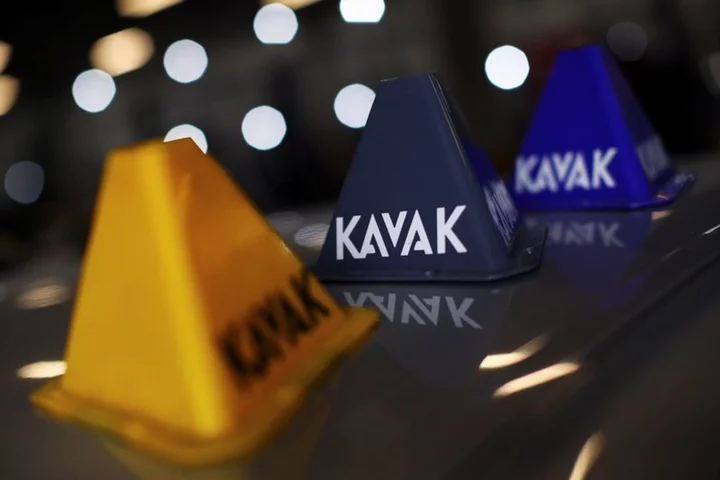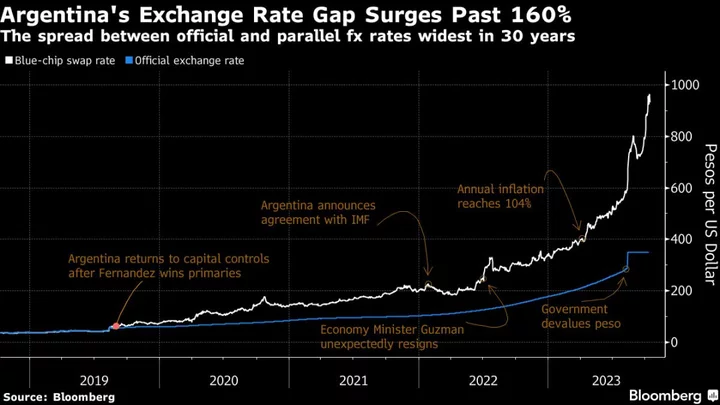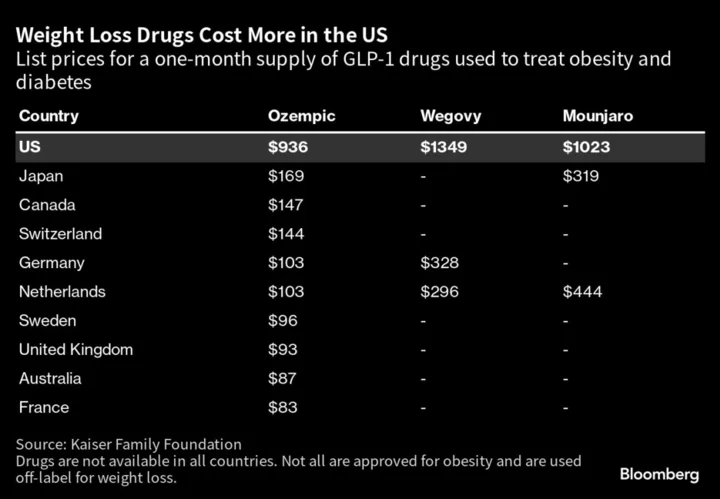The two Koreas are in a space race.
The North is upgrading its space center to accommodate the increased demands of leader Kim Jong Un, who boasted last month the country had completed its first military reconnaissance satellite and called for its launch into orbit to monitor US forces and their allies in Asia.
Given the progress Pyongyang has made with its development of long-range missiles, North Korea stands a good chance of succeeding. The country’s space agency, which recently marked its 10-year anniversary, is at the fore of “building a space power,” state media reported, with the goal “to explore and conquer outer space in our own way.”
All this is raising alarm 195 kilometers (120 miles) away in Seoul. South Korea is working on a rocket program of its own, with the first deployment of commercial satellites into orbit aboard the locally made Nuri rocket.
“There’s definitely a rivalry between the two Koreas in terms of what they’re trying to set up in space,” said military historian David Silbey, director of teaching and learning at Cornell University’s program in Washington.
One big concern is that a successful launch by North Korea could provide a boost to Pyongyang’s nuclear program.
“One of the things satellites are used for is targeting nuclear weapons,” Silbey said. “It’s worth being really nervous about North Korea having this kind of high-end capacity.”
Kim earlier this month visited a facility assembling North Korea’s first spy satellite, an indication the state may conduct its first space rocket launch in about seven years. During the last launch in February 2016, the country said it put an earth-observation satellite into orbit, although outside watchers doubted the claim.
While the country is barred by United Nations Security Council resolutions from conducting ballistic missile tests, Pyongyang has long claimed it’s entitled to have a civilian space program for satellite launches. The US and its partners have warned that technology derived from North Korea’s space program could be used to advance its ballistic missile technology.
“If North Korea can successfully launch and place an imaging satellite into orbit, I have no doubt they’ll use the images to try and refine their targeting list,” David Schmerler, a senior research associate at the James Martin Center for Nonproliferation Studies, said.
One satellite alone wouldn’t be able to cover all of North Korea’s areas of interest, but with subsequent launches, Pyongyang may look to increase its operational awareness on the peninsula and expand into the immediate region, Schmerler said.
“The potential threat from North Korea would notionally remain the same, but with better or more up-to-date imagery, that threat would be more refined — and more effectively deployed — if used,” he said.
Read: Kim Jong Un Calls for Spy Satellite Launch in Face of US Threat
And any satellite launch would add to security concerns Kim’s government is raising the stakes, particularly given the series of new weapons’ tests in recent years.
These have included a solid-fuel intercontinental ballistic missile launched for the first time in April that could be quickly deployed to target the US, and new missiles systems to hit US troops stationed in South Korea and Japan.
South Korea’s expected launch of its home-grown Nuri rocket on May 24 was delayed due to a technical glitch less than three hours before the scheduled liftoff. In a press briefing, Vice Science Minister Oh Tae Seog said he’ll decide Thursday morning whether to launch the rocket later in the day.
South Korea has been seeking to advance its civilian space program. Shortly after the news of the North’s surveillance satellite, South Korea’s Agency for Defense Development announced that it would be building one, too.
The Agency for Defense Development is in charge of the development and the plan is to spend more than 1.4 trillion won ($1.1 billion) by 2030 on the project. The first launch will come in November, when Seoul wants to send multiple synthetic aperture radars (SAR) and electro-optical and infrared sensors into space aboard one of Elon Musk’s SpaceX Falcon 9 rockets.
The SAR satellite will be the first one South Korea’s military launches into the orbit and will enable the government to monitor North Korea movements every two hours within a 30-centimeter resolution.
Still, while both sides race to make progress, some play down any perceived tensions.
“We’re working based on our timeline,” said Koh Jeonghwan, a principal researcher at Korea Aerospace Research Institute. “We’re not comparing ourselves to North Korea.”
--With assistance from Jon Herskovitz.
(Updates with South Korea’s plan to delay the rocket launch in 15th paragaph.)









